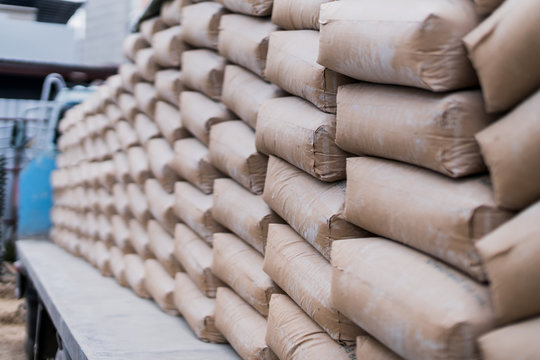The price of cement in the Nigerian market remains outrageously high as a 50kg bag of the product still goes for an average of N12,000 in defiance to an intervention by the federal government and a threat to open doors for importation of the product if the manufacturers do not reduce their prices.
A recent market survey shows that a 50kg bag of Dangote Cement sells for N12,500 while Lafarge sells for between N12,000 and N14,000 per bag. Though it is considered the cheapest in the market today, the BUA brand of the product sells for between N10,000 and N11,000 per bag.
Other brands like Ibeto Cement and United Cement Company of Nigeria Limited (UniCem) are selling for N10,000 and N11,000 as well as N12,000 to N14,000 respectively.
This shows that Nigeria’s real estate, especially the housing sector, is in the most uncertain and troubling times which has seen a lot of developers abandon their project sites while activities at other construction sites have slowed significantly.
As a response to these prices which started from the first and second week of February, the federal government met with the major cement producers and other relevant stakeholders where they agreed to peg the price of the product at N7,000 to N8,000 depending on the location of the buyer and the buyer.
Even though the Minister of Housing and Urban Development, Ahmed Dangiwa, does not see any justification for the price increase, the manufacturers told David Umahi, Minister of Works who chaired the meeting that they had their challenges, listing them as high cost of gas and high import duty on spare parts.
Other challenges, according to them, are poor road networks, high foreign exchange rates and cement smuggling to neighboring nations. They insisted that the only way the price of cement could come down was for the federal government to address all the challenges they have raised.
At a separate meeting with manufacturers of cement and other building materials, Dangiwa decried the high cost of building materials despite the abundance of its raw materials in the country. He queried the recurring disproportionate increase in the price of cement in particular, especially considering that cement producers in the country source virtually all their raw materials locally.
“It is disheartening to see how much Nigerians have to pay for essential building commodities like cement, with the prices rising almost on a daily basis. I don’t understand the reason for this increase, and it is not acceptable.
“The manufacturers should explain to Nigerians their reasons for such incessant hikes. I know that the cement producers source their raw materials in Nigeria; limestone, clay, silica sand, gypsum, iron ore, and the rest. These minerals abound in Nigeria and these manufacturers get them here, so there is no justification to try and blame it all on the rise of the dollar”, he said.
Dangiwa warned that the government might be compelled to open the borders for cement importation if manufacturers of the product fail to bring down the prices, expressing concern that in the past couple of months, the country had witnessed an alarming increase in the prices of cement and other building materials.
“Clearly, this is a crisis for housing delivery. An increase in essential building materials means an increase in the prices of houses,” the minister said.
Like the minister, many other Nigerians are at a loss while the price of cement keeps rising almost on monthly basis. The cement which sells for between N10,000 and N14,000 today was sold for between N5,000 and N6,000 just last January. “It is difficult to understand what changed so abruptly,” Vincent Ogili, a civil engineer supervising a building project that has just been put on hold due to high input cost.
“The current scarcity leading to the high price of the product in the market is, to say the least, quite inexplicable and incomprehensible to even the most discerning minds outside the product production circle,” he added, noting that the price of gas is not enough reason for the present price jump.
Ogili noted further that Nigeria possesses the largest cement industry within West Africa, with at least 12 registered companies amounting to a merged cement capacity of 58.9 metric tonnes per year, adding that Dangote Cement is the largest cement producer in Nigeria and West Africa, manufacturing a combined share of more than 28.5 metric tonnes per year.
ALSO READ:
He pointed out, however, that Nigeria’s cement sector is marked by consistent demand that in recent years has resulted in significant domestic supply gaps. “Infrastructure projects growth – which made up 8.9 percent of Nigeria’s 2022 government budget – the private retail sector and the real estate sector are all driving this rising demand for cement.
Ogili suggested that the time has come to revisit the 2002 backward integration policy of the Federal Government in the cement industry which, he recalled, led to the increase in the industry’s annual production capacity from just two million tonnes in 2002 to about 29 million tonnes in a few years.
Source: Business Day























![Green Building Materials Market Trends [2023-2030]](https://housingcable.ng/wp-content/uploads/2022/04/csrgreen-building_Cisco_04222022-218x150.png)










